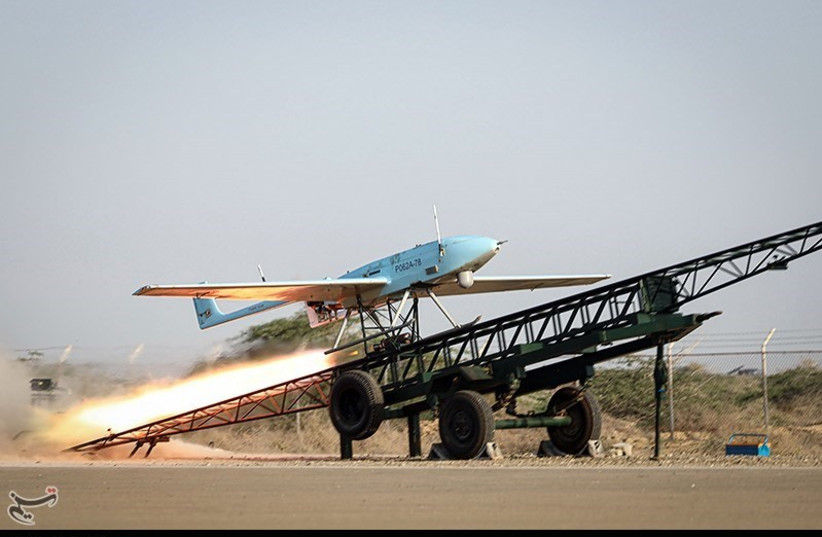Iranian drones and missiles are among the most prominent air defense threats facing both the US and its Gulf allies, according to information from the US Defense Department.
The report followed a meeting between a US delegation and members of the Gulf Cooperation Council in Riyadh, where it was established that both parties essentially share the same security concerns.
But Iran tops the list of concerns.
As explained by US Deputy Assistant Secretary of Defense for the Middle East Dana Stroul, one of the biggest dangers of Iranian drones is how they are proliferated to various non-state actors throughout the Middle East.
This is something that has been the focus of numerous reports before describing how the Islamic Republic supplies its proxies, such as Hezbollah in Lebanon, the Houthis in Yemen and various pro-Iran militias in Iraq.

As Stroul explained, the distributing of Iranian drones to these entities is a danger to both Gulf civilians and US forces in Iraq and Syria fighting ISIS.
And there is also a danger that Iran could respond militarily following a drone attack on a munitions facility in Isfahan in late January.
According to a report in the Russian news outlet Interfax, the drone strike will provoke an Iranian response that will inflame tensions in the region.
Foreign media reports attributed the drone strike to Israel.
Iran also poses a danger at sea
Another area where the US and its Gulf allies are concerned regarding Iranian aggression is at sea.
This is in part related to the Islamic Republic's history of alleged maritime activity, such as attacking and seizing ships.
In light of this, Stroul explained that there has been a major effort in bringing the US and its allies together to increase maritime security. This, she said, "speaks both to the serious nature of the threats we face at sea and to how we can effectively address those threats through increased cooperation."
Iran's smuggling network and cooperation with Ukraine
It also includes how Iran uses ships as part of its smuggling network.
This comes after the UK Royal Navy intercepted illegal weapons shipments from Iran headed abroad, such as to Yemen and Russia.
Russia in particular has been in the spotlight for its connection to Iran, as the Islamic Republic has long been accused of sending drones for Moscow to use in its invasion of Ukraine.
What will the US and Gulf partners do?
The major bit of news to come out of this meeting is that there is increased interest in integrating US air and missile defenses with the systems used in the Gulf.
Discussions also centered around increased intelligence sharing and early warning systems. All of this could help formulate a more effective and layered air defense network.
"There has been no other moment in time in which the prospect for meaningful integration is more real than today."
Dana Stroul
"There has been no other moment in time in which the prospect for meaningful integration is more real than today," Stroul said. "It's both because of that alignment of threats that I just went through. And it is also because of emerging technology and the culture of innovation that Centcom [US Central Command] is fostering together with its partners."
